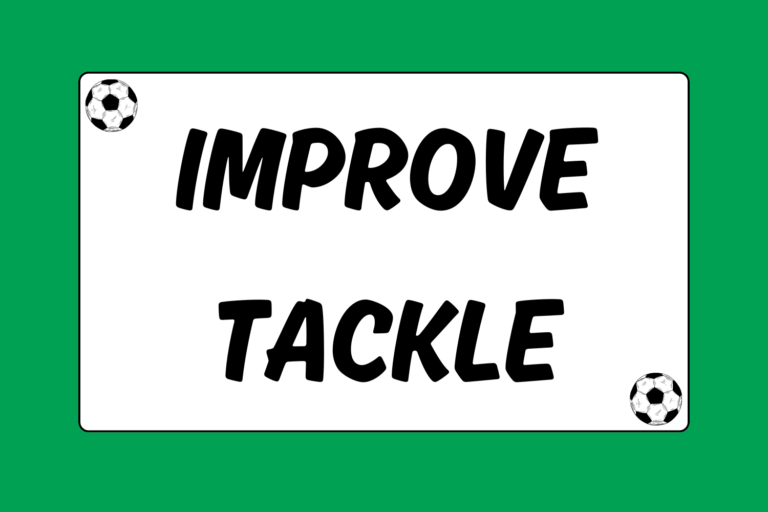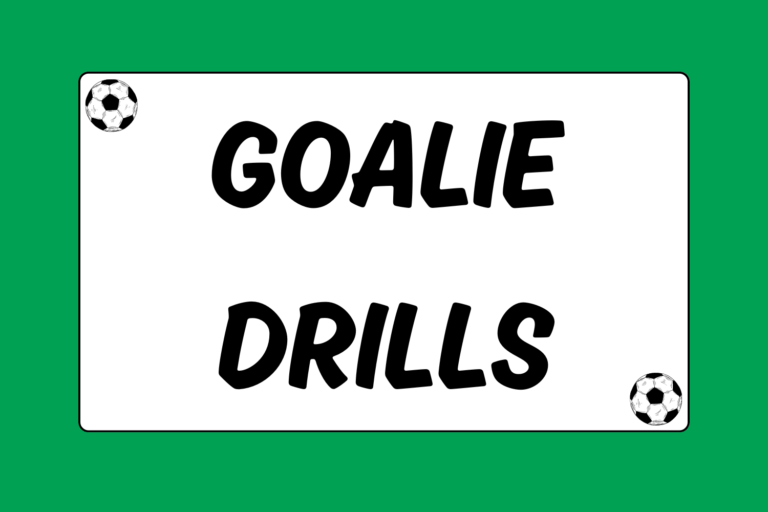The best soccer goalies have the right physical attributes, such as agility, height, and speed. But the non-physical demands of goalkeeping are just as important. The best soccer goalkeepers combine great physical skills with the mental sharpness needed to excel in goal.
Keepers should be tough-minded, confident, humble, and a little egocentric—a combination that should help them keep calm when the opposing team’s offense is filling the 18-yard box. Because not everyone can do this, goalie is one position that players should volunteer to play.
If you’re a goalkeeper in training, following these important tips will help you lead your team to victory.
Stay Positive, Stay Calm
If you’re the type of person who finds it easy to stay calm under pressure, goalkeeper might be the position for you. The pressure is sure to come; be it from an individual breakaway, or a flurry of passes on the attack, you’ll have to shift positions, slide laterally, and concentrate on the ball while marking a defenders.
Remaining calm at all times is crucial for goalies. The key to staying calm is confidence — knowing that you will make a save and quickly get the ball up field on the counter-attack. Staying calm will also help in the following ways:
- Keeps you fundamentally sound: By staying calm, your mind will be clear enough to call on all your training, which is very difficult in a panic. You will also be better able to concentrate on the ball and the offense. Avoiding panic will likely help you avoid costly mental errors.
- Keeps your defense confident: A calm, focused keeper signals to the defense that you are in charge. Goalies who act like they own the area around the goal are more likely to have confident defenders.
- Improves communication: It’s much easier to communicate with a clear head. As the only player who can survey the entire field, goalies can help defenders mark their man and watch the path of the ball. Goalies also should help defenders set up a wall to defend against penalty kicks.
It’s also important to avoid panicking after making a save. If there’s no immediate opportunity to counter, take a moment to let your midfielders get up field, and your defenders relax, before kicking or throwing the ball to a teammate.
Mental Edge
Getting up quickly after making a tough save can easily spark a counter-attack that shifts the momentum to your side. It also signals to the opposition that their attack was not very challenging, which can lead to a weakened attack in the future.
Don’t Get Down After Goals
It’s crucial you understand that mistakes will happen and goals will be scored. However, it’s also important to decide that you are going to get over them quickly and put them behind you, even if it’s easier said than done.
When a goal is scored off of an errant pass, a premature sprint at a breaking forward, or a slippery ball that eludes your grasp, it’s very difficult to not let it affect you for the rest of the game. The key is accepting your error. The faster you accept the mistake, the more quickly you will be able to move forward.
Many goalies use physical and mental exercise to help them get over it and move on:
- Take ten seconds of controlled breathing: Decide that after ten seconds is over, the goal will be in the past. Control your breathing; imagine exhaling out the bad feeling you have about the goal.
- Stay active: Slide-step from post to post or jog in place. This will keep your blood moving, as well as help you being forgetting about the goal.
- Talk to your teammates: Listen when they encourage you, and let them keep you loose. For some goalies, laughter can help shed the disappointment of the previous goal.
- Visualization: Envision making the next save on a different shot from a different forward. Visualize saving multiple shots until play resumes.
It’s worthwhile to try out a few different strategies for getting over goals and mistakes. The important part is remembering that the best goalies learn from their mistakes and quickly move on. Show your teammates that you’re a reliable keeper by staying focused and concentrating on the moment, and they in turn will have the confidence they need to go get the goal back.
Make Good Decisions
Goalies will often be make difficult, split-second decisions. The only way to know how to make the right decision is through experience and practice.
Tough decisions that goalies face are should-I-stay-or-should-I-go decisions, like…
- When to advance on a breakaway.
- When to charge or cross to the back post.
- When to slide or dive in one-on-one situations.
Open net situations that follow the wrong choice can be disastrous. Even world-class goalies sometimes sprint out from the goal line to steal a pass, only to find themselves exposed after missing the ball. Be aggressive, but know your limitations as a goalie — let your instincts tell you when to react and follow them as much as possible.
Above All Else, Have Fun
The best goalkeepers embrace the pressure that’s inherent in position. That means showing up for practice and games with enthusiasm and spirit, and loving the thrill of making the key save at the right time. If you’re passionate about playing goalie, you’ll naturally stay positive and confident no matter what happens during games.





